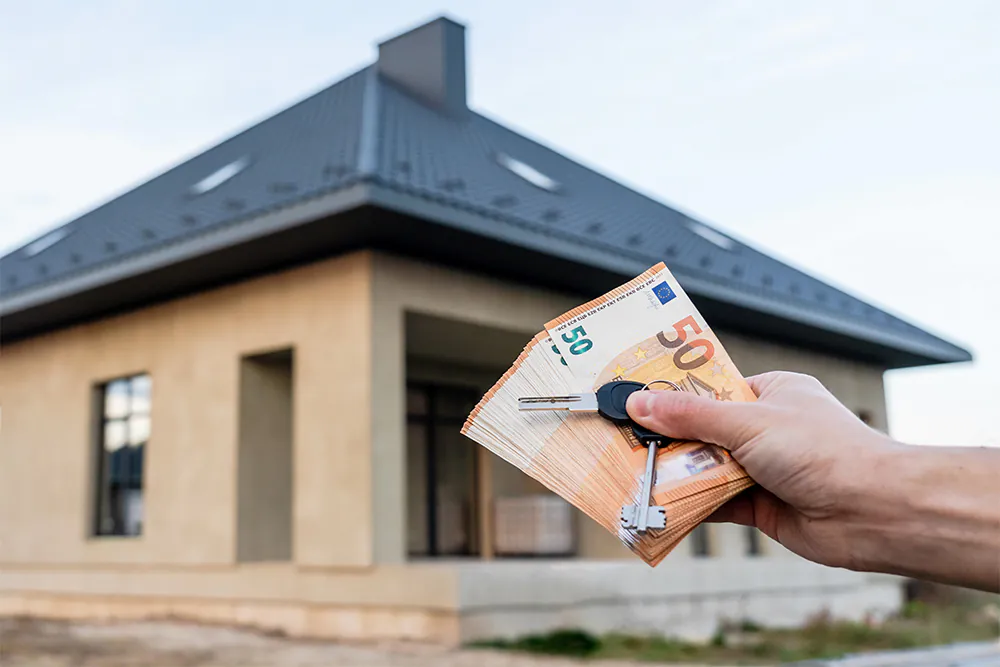Why do Bulgarians buy properties with cash – why are mortgages less common?

На всеки 100 сделки само 27 са осъществени с ипотечен кредит. България бедна държава ли е?
През изминалата 2024 година пазарът на недвижими имоти в България отбеляза значителен ръст – цените се увеличиха с около 16 процента, а броят на сделките отбеляза също възходяща тенденция. Йордан Йорданов, управляващ директор на агенция за недвижими имоти “Нов Дом 1”, споделя: „Ръстът в цените и обема на продажбите показва, че интересът към недвижимите имоти остава стабилен, а тенденциите, наблюдавани през изминалата година, ще се задържат и през настоящата.“
Каква роля играят банките?
Особеност на българския пазар е, че влиянието на банките е по-ограничено в сравнение със Западна Европа. По данни на Българската народна банка, лихвите по жилищните кредити в България са сред най-ниските в Европа, вариращи между 2.1% и 3.6%.
„По официални данни през последните 10 години у нас на всеки 100 сделки само 27 са осъществени с ипотечен кредит, а останалите – с налични пари, което говори за особената структура на нашия пазар,“ коментира Йорданов. За разлика от България в страни, като Германия, Англия, САЩ, Канада и др. на всеки 100 сделки между 80% и 90% са с кредит. Тази тенденция се наблюдава въпреки рекордния ръст на ипотечните заеми през последните години.
Той уточнява, че в София дори получаването на ипотечен кредит е нараснало до около 30 от 100 сделки, докато във Варна този дял е намалял. „Хората в България държат повече пари в брой, което частично се дължи на сивата икономика и наличието на скрити доходи, които изкривяват официалната статистика,“ допълва той.
Стабилната банкова система, ниските лихви и малката безработица се считат за положителни фактори за пазара.
„Инвестицията в недвижим имот остава един от най-стабилните варианти за генериране на печалба. България е много подходяща за такъв тип вложения – ние сме като оазис сред миграционната криза в Европа, с добронамерени хора и ниска тежка престъпност.“, коментира Йорданов.
В същото време, според него, проблемът е, че значителна част от населението не притежава достатъчна финансова грамотност и не умеят да управляват парите си по оптимален начин. Това може да попречи на развитието на пазара, особено когато става въпрос за по-сложни финансови инструменти.
София срещу Варна
Йорданов подчертава, че в София процедурите по издаване на разрешителни са значително по-бързи, ако документите от страна на инвеститорите са законосъобразни. Той пояснява, че в града няма сериозни проблеми, свързани с инфраструктурата, което допринася за по-динамичното развитие на строителството.
В контраст с това, Варна се сблъсква с редица предизвикателства: „Общината във Варна трудно предприема промени в подробни устройствени планове – това дава лош сигнал към инвеститорите. Освен това, липсата на достатъчно енергомощности и инфраструктурни проблеми, като липсата на пътища и канализация, пречат на развитието,“ казва той.
Търсенето на имоти във Варна остава много голямо, но слабото предлагане води до баснословни цени. „Психологическата бариера от 250 000 евро за имот все още е тежък праг, а цената на квадратния метър варира според района и етапа на строителство – средните стойности се движат между 1500 и 1800 евро,“ добавя Йорданов. Също така той отбелязва, че и в София, и във Варна вървят активно сделки на зелено.
Какво да очакваме от 2025 година ?
За настоящата година Йордан Йорданов прогнозира, че пазарът ще продължи да расте с още 5-10 процента. Този ръст се очаква да бъде обосновен от общата икономическа стабилност, но също така и от фактори като увеличения интерес на чуждестранни инвеститори, особено след евентуалното влизане на България в еврозоната. Единственият сериозен риск, според Йорданов, би бил сривът в икономиките на Западна Европа, който би могъл да ограничи външните инвестиции.
Допълнителен фактор, който може да окаже влияние върху цените на имотите и строителните разходи, е възстановяването на Украйна след края на войната. Очаква се огромен обмен на строителни ресурси за реконструкцията на страната, което ще доведе до повишаване на цените на строителните материали в цяла Европа, включително и в България. Това поражда въпроса – дали сега не е най-добрият момент за покупка на имот, преди тези промени да окажат влияние върху пазара?
